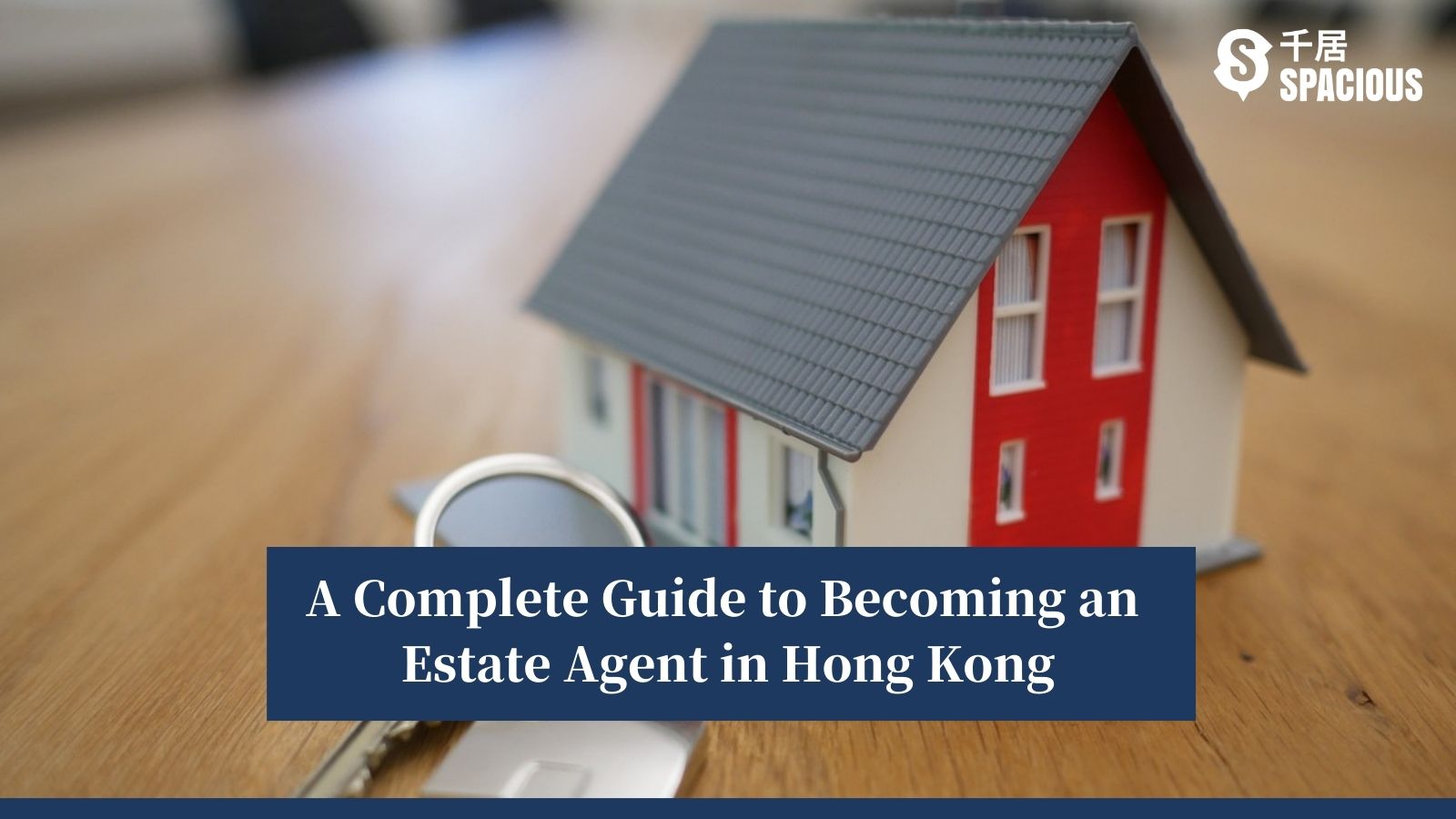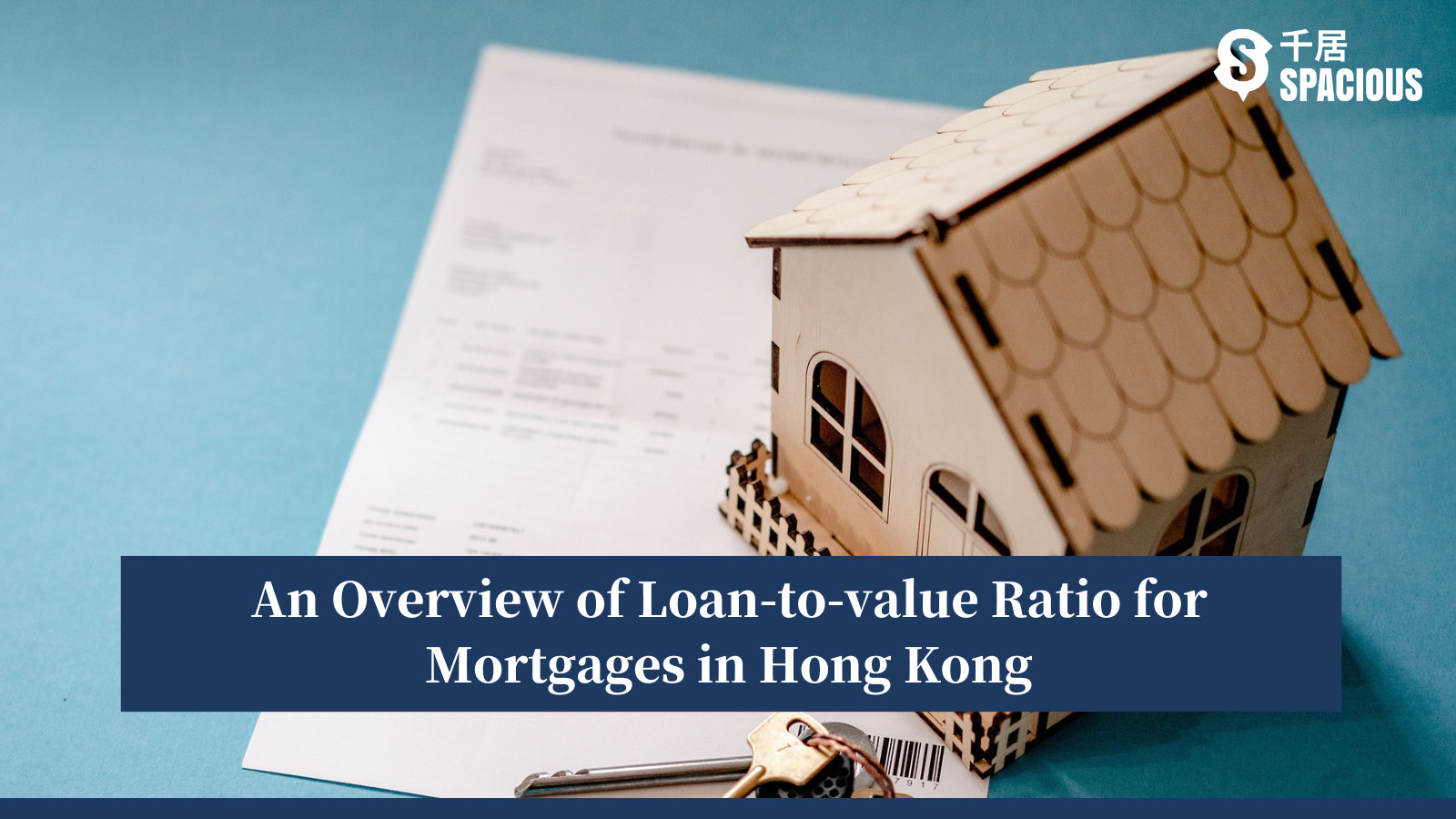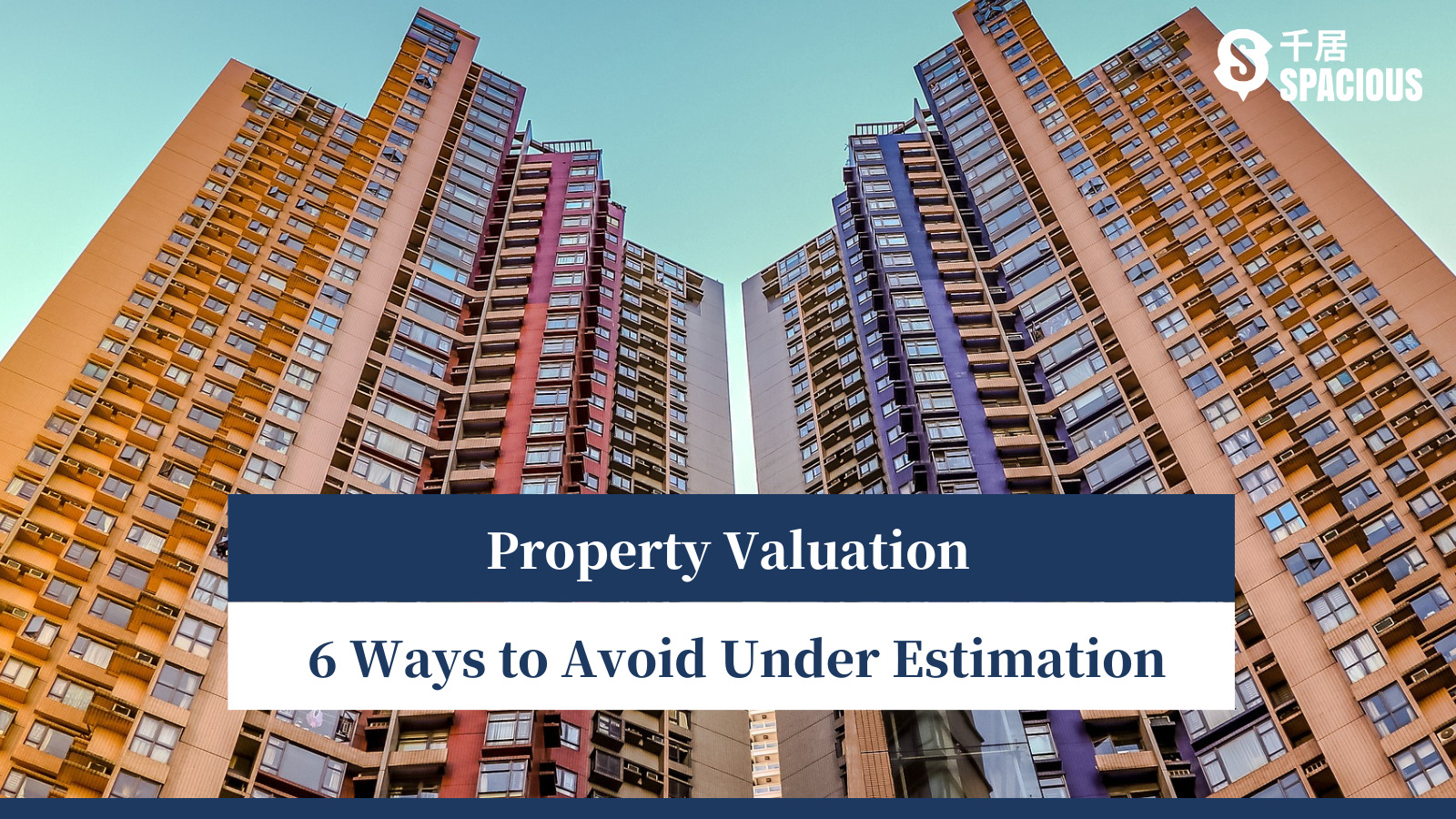
Does becoming a real estate agent lead to prosperity? Yes, real estate is a labor-intensive industry where your monthly earnings depend on your determination and hard work. Everyone starts from an equal footing, and the first step is to obtain a real estate license.
Want to know how to transition into real estate? What preparations should you make before entering the field? Should you choose a large agency or a small one? Which area should you specialize in? What are the daily tasks of an agent? How are commissions divided and disbursed? After reading this article, you will have a clear understanding of it all.
Jump to: Licensing Requirements | Licensing Types | Exam Registration & Fees | Exam Preparation | Things to Know Before Entering the Industry | Routine Work | Commission Split
Obtaining an Estate Agent License
Although the threshold for becoming an estate agent is low, not everyone is eligible. The Estate Agents Authority (EAA) has specified the conditions that must be met to obtain a license:
- At least eighteen years old of age.
- Have completed at least five years of secondary education or an equivalent level of education.
- Achieve a passing grade in the qualification examination within the twelve months preceding the license application date.
- Being an eligible candidate.
Main criteria of an eligible candidate
- Not being an undischarged bankrupt.
- Having no debt restructuring or repayment agreements with creditors within the past five years.
- Not having had the real estate agency license qualification revoked under the Estate Agents Ordinance.
- Not being a person or patient as defined in Section 2 of the Mental Health Ordinance.
- Not having been convicted of fraud, dishonesty, or other dishonest acts.
- Not having been convicted and sentenced to imprisonment under the Estate Agents Ordinance.
- Not having been convicted of any other offenses.
Find or sell properties on Spacious
Types of Estate Agent Licenses
There are two types of licenses: Salesperson License and Estate Agent License.
Salesperson License (also known as “S license”)
The holder can only work as a salesperson for a licensed estate agency company, but they are not allowed to operate a real estate business individually or in partnership, or serve as a director of a real estate business.
Many people ask whether they should pursue the E or S license. There is no definitive answer to this question as it depends on how you plan your career.
In short, if you want to explore whether the real estate industry is suitable for you, it is recommended to start with the S-license. If your long-term goal is to advance to a managerial position and establish your own sales team, obtaining the E-license is necessary.
Do you need an estate agent license to sell overseas properties?
According to the Estate Agents (Exemption from Licensing) Order, if a real estate agent solely sells overseas properties and does not handle local properties, their business is not regulated by the Estate Agents Authority.
However, it is still necessary to state in all correspondence, accounts, receipts, leaflets, brochures, and other documents, as well as in any advertisements, that they do not hold a license for dealing with any properties located in Hong Kong.
Assuming you are over eighteen years old, possess a Form 5 education level or its equivalent, and meet the criteria set by the Estate Agents Authority for suitable candidates, the next step is to obtain a passing score in the qualifying examination.
Find or sell properties on Spacious
Exam Registration and Fees
Check the Exam Schedule
Log in to the Estate Agents Authority website to access the exam schedule. Depending on the license you are applying for, you can view different exam sessions and dates, usually showing the upcoming three months. The S-License may offer computer-based or written exams, while the Estate Agent License only has written exams.
Each qualifying examination has specific instructions on how to register (online, by post, in person, or through a representative). The Estate Agents Authority website will provide links for online registration and downloading application forms.
Register Online
The link will redirect you to the online registration system of PEAK Examination Centre, which is one of the member institutions of the Vocational Training Council responsible for arranging and conducting the real estate qualifying exams.
On the registration form, select the exam region and language, and indicate whether you are willing to access your exam results online. Once the exam region is selected, it cannot be changed.
Remember to register as early as possible (until capacity is reached) and carefully review the Exam Information and Candidate Guidelines before submitting your application.
Request an Application Form
Whether postal or in-person registration is allowed depends on the mode of examination, with computer-based exams generally accepting online registration only.
You can download the application form from the examination center’s website or obtain it from the Estate Agents Authority office (Room 01, 48/F, Hopewell Centre, 183 Queen’s Road East, Wan Chai, Hong Kong) or the PEAK Examination Centre office (M/F, Vocational Training Council Tower, 27 Tai Yip Street, Wan Chai, Hong Kong).
Fees and Payment Methods
The examination fee for the Salesperson License (S License) is $650, while the examination fee for the Estate Agent License (E License) is $900.
For online registration, payment can be made by credit card (Visa/Mastercard/UnionPay).
For postal registration, payment can be made by crossed cheque or bank draft (payable to “Vocational Training Council”).
For in-person or delegated registration, payment can be made in cash, EasyPay, credit card (Visa/Mastercard/UnionPay), or Alipay HK/WeChat Pay HK.
Confirmation Email and Attachment
After completing the online registration and payment, you will receive a confirmation email from the examination center. If your registration is accepted, you will receive an admission notification email within at least two working days (excluding the registration day).
The email will contain an attachment of the Exam Admission Letter, which needs to be opened with your Hong Kong identity card/passport number. Remember to print the Exam Admission Letter and present it on the day of the examination.
If you submit the application form in person or through a representative, you will receive the receipt and Exam Admission Letter immediately after successful payment and registration.
Find or sell properties on Spacious
Preparing for the Examination
As there are no specified study materials, candidates primarily prepare for the exam through the following means:
- Information on the authority’s website
- Purchasing reference books for the estate agency qualification exam from bookstores
- Enrolling in estate agency qualification exam courses
- Entering the industry before taking the exam (some agencies provide free exam preparation courses
The scope of examination differs for the two qualifications. Although the Estate Agents Authority does not publish any study materials, they list the exam content, scope, format, number of questions, time limit, and passing score on their website.
From the application to the actual exam date, candidates usually have just over a month to prepare. It is essential to study diligently and not rely solely on common knowledge. The exam questions cover various laws, professional practices, and codes of conduct, which can be easily confusing.
Items to bring on the day of the exam
- Original valid identification document used during registration
- Exam Admission Letter
- Pencils and erasers
Note: Calculators and electronic devices are not allowed or necessary in the examination hall.
Receiving the Examination Results
The examination results can be checked online after fourteen working days following the exam. However, this service is only available to candidates who have agreed to have their exam results published online. The examination results will also be sent to candidates by regular mail.
The displayed examination results will indicate whether the candidate achieved an Excellent, Pass, Fail, Absent, or Disqualification grade, along with the scores for Part 1 and Part 2 of the exam.
If the candidate passes the exam:
Within 12 months from the issuance date of the “Notification of Results,” they must apply to the regulatory authority for the relevant license. Otherwise, the obtained exam results will not be recognized for license application purposes.
If the candidate fails the exam:
If the candidate fails to achieve a passing score in the exam, they may reapply for the upcoming qualification exam.
Find or sell properties on Spacious
Things to Know Before Entering the Industry
If you have successfully obtained your license, congratulations! It means you’re just one step away from entering the industry. Now, you need to consider which agency to join and which district to focus on. The following analysis combines opinions from various agents to provide an overview.
Big Agencies vs. Small Agencies
Big agencies generally refer to the four largest agencies with the most branches across Hong Kong.
Small agencies refer to agencies other than the four major ones. Small agencies may have branches, but they usually focus on a specific district.
Advantages of joining a big agency
- Developers usually authorize big agencies to sell their new properties, so being part of a big agency allows you to have access to both the primary and secondary markets.
- Big agencies are more regulated, have a better reputation, and offer a wider range of property listings, making it easier to attract clients.
- Due to their extensive network, there are opportunities to collaborate with colleagues from different districts or even small agencies, enabling cross-district business.
Advantages of joining a small agency
- Higher commission splits with the company.
- Small agencies often focus on secondary property transactions within a specific district. They tend to have better relationships with property owners and have more referrals from existing clients.
- With fewer employees, there are more learning opportunities, allowing you to acquire industry knowledge and skills more quickly.
As of the end of May 2023, there were nearly 40,963 licensed real estate agents in Hong Kong. If you have friends or acquaintances in the industry, it’s worth asking for their opinions and recommendations.
Finding a good mentor or experienced professional can be more important than deciding between a big agency or a small agency.
Luxury Residential Areas vs. Large-scale Housing Estates
Advantages of working in luxury residential areas
A single transaction in the luxury residential market can involve tens of millions or even billions of dollars, which is equivalent to the turnover of 5 to 6 small to medium-sized units.
Luxury property transactions are not necessarily more difficult than regular ones. Buyers in the luxury market have substantial financial resources and are willing to enter the market as long as it is a high-quality property with appreciation potential.
On the other hand, less wealthy buyers may need more negotiation and comparison due to budget constraints before making a purchase.
Advantages of working in large-scale housing estates
Large-scale housing estates offer a larger customer base, with higher levels of property viewings and transactions. This allows you to interact with more property owners, potential buyers, and tenants.
Today’s tenants may become buyers in the future, and buyers may upgrade to larger and more expensive properties. As long as your clients trust you, they may become repeat customers and refer new clients to you. With an expanding customer base, business growth is not far away.
Whether to focus on large-scale housing estates or luxury residential areas is a tricky question. Besides considering the properties within the area, you should also think about your familiarity with the area and whether it is a faraway location. Real estate work can be time-consuming, and a long commute can be tiring.
How to Stay Ahead with Real Estate Information
To be a professional real estate agent, it is crucial to have a good understanding of property prices and market trends. In simple terms, you need to be familiar with transaction data in the area and the listings you have on hand.
Building strong relationships with property owners is highly valued in the real estate industry, and although it is something that accumulates over time, you can also prepare for it before entering the industry.
For example, you can search for transaction data and practical information on real estate platforms like Spacious. This will deepen your understanding of the real estate market.
Spacious provides comprehensive information on new property supplies, secondary market transactions, rentals, housing policies, and buying/renting strategies across various districts in Hong Kong. The earlier you gain this knowledge, the more advantageous it will be.
Find or sell properties on Spacious
Routine Work of an Estate Agent
The most important task for an estate agent is to close deals, which involves the following components:
- Introducing and promoting properties.
- Arranging property viewings.
- Requesting or providing property information.
- Negotiating terms for buying or leasing properties.
- Drafting, arranging, and signing purchase agreements or lease agreements.
The fundamental task is to maintain relationships with both buyers and sellers. Each real estate agency has a database of property owners, and agents need to regularly communicate with owners to keep property information up to date.
This includes staying informed about price fluctuations and actively introducing properties to potential buyers, as well as accompanying clients for property viewings.
Additionally, there is the aspect of working with properties in the primary market. When new developments are about to be launched, agents need to familiarize themselves with the property details and price lists.
They may also have the opportunity to visit show units in advance. Sometimes, developers hold meetings with frontline agents to explain the selling points of the development and provide necessary support.
Client Acquisition Techniques
In the real estate industry, it is essential to stay up-to-date and employ various strategies to succeed in a highly competitive environment. Here are some effective techniques for client acquisition.
Online Promotion
Property owners often entrust their properties to multiple real estate agencies. When encountering a high-quality listing, agents need to act swiftly. One strategy is to simultaneously list the attractive properties on popular third-party property search websites.
For example, listing properties on high-traffic platforms like Spacious can significantly increase their exposure and help agents stay ahead in attracting clients.
Video Introductions
With the increasing popularity of online property viewing, creating video introductions for individual units or community facilities has become a trend.
In the real estate business, it’s important to remember that you are promoting yourself. In addition to having a deep understanding of the market and property values, finding ways to differentiate yourself and stand out is crucial for acquiring clients.
Find or sell properties on Spacious
How is Commission Split in Real Estate
The main source of income for real estate agents comes from commissions. Commission refers to the fee paid by both the buyer and the seller to the agent for facilitating a transaction.
The commission percentage may vary for each transaction and can be determined through mutual agreement. Regardless, whether the commission is paid by the buyer or the seller, it is clearly stated in the contract, ensuring transparency among all parties involved.
Furthermore, the commission also needs to be split with the employing brokerage. The split ratio depends on the earned commission and varies among different brokerage firms. The higher the commission amount, the higher the proportion received through the split.
How much commission is earned from a transaction?
Generally, an agent’s individual commission income for a month is calculated based on the accumulated commissions earned during that month. The commission split percentage for each transaction (buying, selling, leasing, new or resale) can vary.
Here is an example.
Let’s say an agent facilitated a resale transaction for a property valued at $10 million. Both the buyer and the seller agreed to pay a 1% commission, resulting in a commission of $200,000.
If the commission split ratio for the agent is 30% (brokerage: 70%, agent: 30%), the agent would receive a personal commission of 60,000 for that transaction.
The above example primarily represents the commission split for a salesperson. For managerial levels, the commission split is calculated based on the total commission earned by the entire team.









